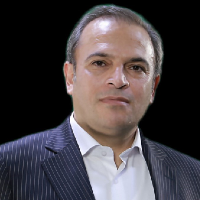Identifying and prioritizing human resources management practices affecting organizational identification to enhance the combat power (A case study of a defensive industrial unit)
Author(s):
Article Type:
Research/Original Article (دارای رتبه معتبر)
Abstract:
Manpower and its management are among the non-physical factors that affect the combat power of the armed forces. Accordingly, this research was an attempt to identify and prioritize human resources management practices which affect organizational identification to increase the combat power of the armed forces. This research is descriptive-survey in terms of purpose, and is applied research in terms of its type of use. From among employees working in an industrial defense unit in Tehran, a sample of 350 were chosen through simple random sampling. After designing and determining the validity and reliability of the tool, a structural equation model was used to analyze the data. The findings revealed that identity making policies, ethical leadership styles, identity making tools and skills, and identity making policies are among human resource management practices that affect organizational identification. In addition, the findings showed that organizational identification affects the non-physical factors of combat power. Hence, managers and commanders must create organizational identification through employee engagement, empowerment, development of working groups, leadership ethical styles, and satisfactory communications, and through these practices they can increase the non-physical combat power of the armed forces
Language:
Persian
Published:
A Research Quarterly in Military Management, Volume:18 Issue: 69, 2018
Pages:
82 to 103
https://magiran.com/p1878976
مقالات دیگری از این نویسنده (گان)
-
Meta-Synthesis of Antecedents and Outcomes of Developing Social Capital in the Organizational Studies of Iran
*, Daroush Mehri, Faramarz Ghorani, Hadi Nahadi
Journal of Social Capital Management, -
Presenting sustainable work-life balance(A study in petroleum industry)
Seyyed Ghader Radmard*, Abbas Nargesian, , Marjan Fayyazi
Strategic Studies in Petroleum and Energy Industry,


